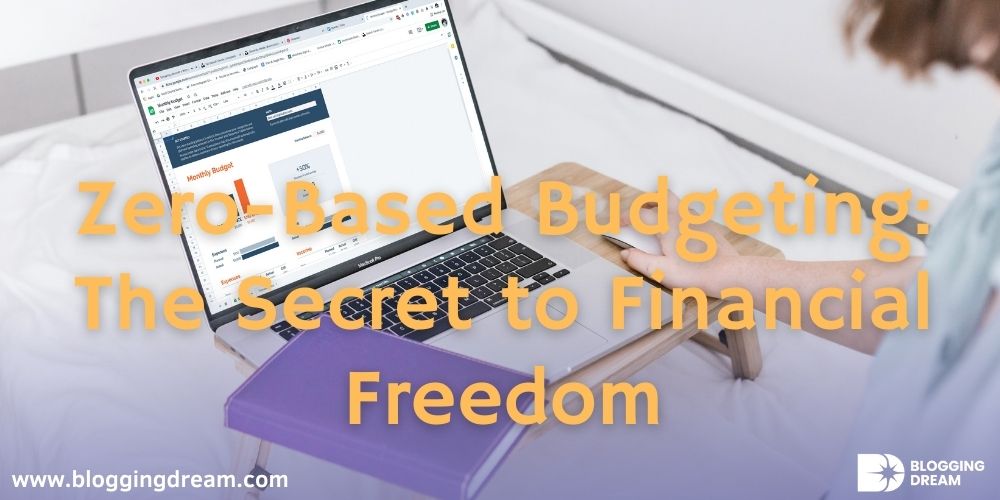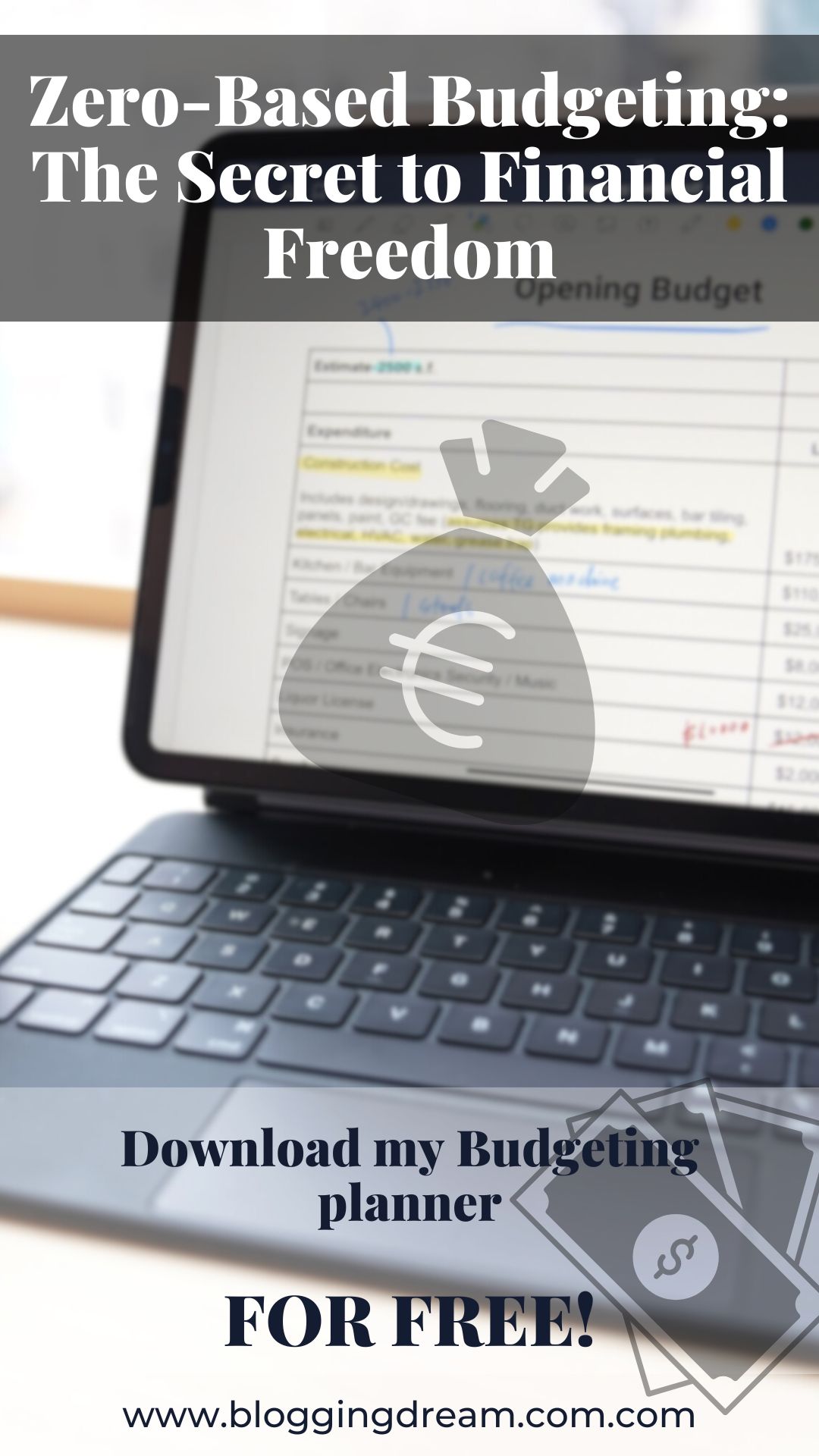Zero-Based Budgeting: The Secret to Financial Freedom
Introduction to Budgeting: Why It's Important for Financial Success
Budgeting is one of the most important skills you can learn when it comes to managing your money and achieving your financial goals. Whether you're saving for a big purchase, paying off debt, or just trying to make ends meet, having a solid budget in place is essential. But many people struggle with budgeting, finding it confusing, overwhelming, or just plain boring. The good news is, budgeting doesn't have to be difficult, and there are many proven strategies that can help you stay on track and achieve your financial goals.
(toc) #title=(Table of Content)
Understanding Your Income and Expenses
The first step to creating a successful budget is to understand your income and expenses. This means tracking every penny you earn and spends for a few months, so you can see exactly where your money is going. This information will be crucial in helping you create a budget that works for you. When you have a clear understanding of your income and expenses, you can start to make changes that will help you achieve your financial goals.
Creating a Budget that Works for You
Once you have a good understanding of your income and expenses, it's time to create a budget. There are many different methods you can use to create a budget, from simple pen and paper to more sophisticated software or apps. It's important to choose a method that works for you, and that you'll stick to over the long term. Some people prefer to use a budgeting app, while others prefer a simple spreadsheet. The important thing is to find a method that you're comfortable with and that you'll use regularly.
Free Monthly Budget Planner here: (getCard) #type=(download) #title=(Monthly Budget Planner) #info=(free) #button=(Download)
Cutting Costs and Finding Extra Money
Once you've created a budget, it's time to start making changes. This might mean cutting back on expenses, such as eating out less often or canceling a gym membership you never use. It might also mean finding ways to increase your income, such as taking on a side job or selling items you no longer need. The goal is to find ways to reduce your expenses and increase your income, so you can reach your financial goals faster.
Staying on Track with Regular Check-Ins
One of the biggest challenges of budgeting is staying on track. Life can be unpredictable, and it's easy to get off course. That's why it's important to regularly check in on your budget, to make sure you're still on track, and to make any necessary adjustments. This could be as simple as reviewing your budget once a month, or as complex as tracking your expenses every day. The key is to find a system that works for you and stick to it.
Zero-Based Budget
A zero-based budget is a budgeting method where you give every dollar a job. In other words, your budget for every dollar of your income, with the goal of having no money left over at the end of the month. With this method, your account for every dollar of your income, including savings, bills, and discretionary spending.
Here are a few key benefits of a Zero-Based Budget:
Helps you track your spending:
Increases your savings:
By giving every dollar a job, you can allocate money to your savings each month, ensuring that you are making progress toward your financial goals.
Reduces financial stress:
By having a plan for your money and knowing exactly where each dollar is going, you can reduce financial stress and feel more in control of your finances.
How to Create a Zero-Based Budget
Creating a zero-based budget can seem daunting, but it is a straightforward process. Here are a few steps to get started:
Gather your income and expenses:
Write down all of your sources of income and all of your monthly expenses. Be sure to include all expenses, including fixed expenses (e.g. rent, utilities) and discretionary expenses (e.g. entertainment, dining out).
Assign every dollar a job:
Once you have a complete picture of your income and expenses, assign every dollar to a job. Make sure that you allocate enough money to cover all of your expenses, including savings and debt repayment.
Track your spending:
Keep track of your spending throughout
Free Monthly Budget Planner here: (getCard) #type=(download) #title=(Monthly Budget Planner) #info=(free) #button=(Download)
Prioritize Your Expenses
The next step in budgeting is prioritizing your expenses. This means deciding what is most important to you and what you are willing to spend money on. You may have to make some tough choices, such as cutting back on entertainment or eating out, but it's important to remember that these choices will help you achieve your financial goals in the long run.
Start by making a list of all your monthly expenses, including necessities such as rent, utilities, and food, as well as discretionary items like entertainment and eating out. Then, rank each item in order of priority. This will help you determine where you can cut back and where you can afford to spend more.
Use a Budgeting Tool
Using a budgeting tool can be extremely helpful when it comes to staying on track with your budget. There are many different tools available, ranging from simple spreadsheets to more complex budgeting software. Some popular options include Mint, Personal Capital, and YNAB (You Need A Budget).
When selecting a budgeting tool, it's important to choose one that works for you and meets your needs. Some tools may be more suited to people who are just starting to budget, while others may be more appropriate for those who are more experienced.
Making Adjustments as Needed
Budgeting is not a one-time event. It's an ongoing process that requires regular attention and adjustment. This means that as your income and expenses change, you'll need to make changes to your budget. For example, if you get a raise, you may be able to increase your savings or pay off debt faster. If you have a sudden expense, such as a medical bill, you'll need to adjust your budget to account for it. It's important to be flexible and willing to make changes as needed, in order to stay on track and achieve your financial goals.
Conclusion: Taking Control of Your Finances with Budgeting
Budgeting is a powerful tool that can help you take control of your finances and achieve your financial goals. Whether you're saving for a big purchase, paying off debt, or just trying to make ends meet, a solid budget is essential. By understanding your income and expenses, creating a budget that works for you, cutting costs, and finding extra money, you can live a better life



